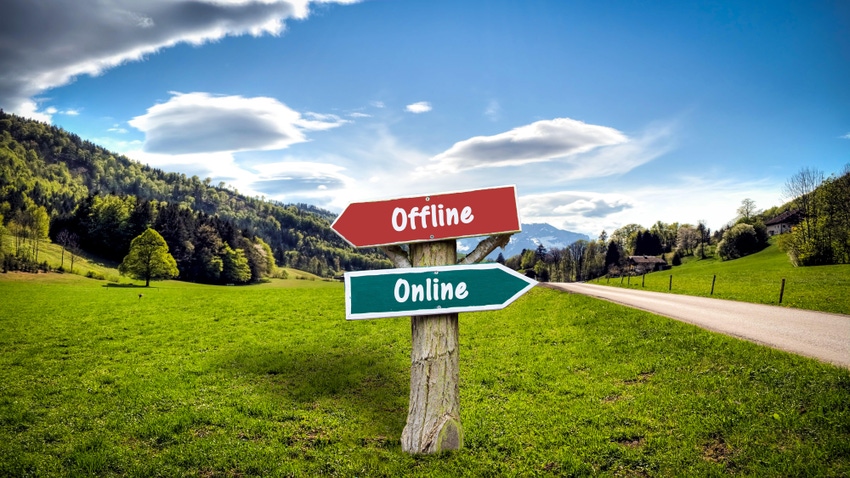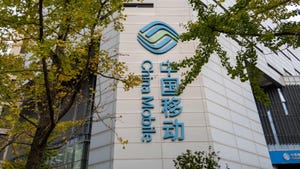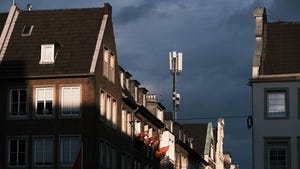ACP enters partial funding phase as Senate considers bill to keep it alive
Yesterday (April 30) was the last day of full funding through the Affordable Connectivity Program (ACP). But Democrats on Capitol Hill, alongside consumer advocates, are still seeking a solution.

The Affordable Connectivity Program (ACP) has officially entered its partial reimbursement era. The broadband subsidy program, relied upon by 23 million US households, is on the verge of running out of funds and will pay a maximum of $14 per non-tribal household this month, before shutting down at the end of May, unless Congress acts fast.
Efforts to get Congress to pass funding legislation have thus far failed, despite broad bipartisan support for the program. Nevertheless, consumer broadband advocates remain hopeful there's still a chance to get it done.
"ACP is simply the most effective program that we've ever had in getting low-income Americans connected and keeping them connected. In fact, it's been the most successful program ever in our decade-long bipartisan push to crack the digital divide," said FCC Commissioner Geoffrey Starks, a Democrat, at an event in Washington, DC, on Tuesday.
"On behalf of the 23 million households nationwide, and the 63,806 households here in DC that rely on this program, I'm here to fight for you today. We've got to continue and rally hard to keep the pressure and momentum going until we see this through to save ACP," added Starks.
The event, dubbed as an ACP Rally, was hosted by consumer and industry groups Public Knowledge, Civic Nation, National Digital Inclusion Alliance, National Hispanic Media Coalition and Digital Progress Institute. It featured remarks from Democratic FCC Commissioners Starks and Anna Gomez, as well as Sen. Peter Welch (D-VT), among others.
The speakers all rehashed the various reasons why the ACP matters: It's a key part of making broadband deployments succeed, especially in rural areas, said Commissioner Gomez. Nearly half of those supported by ACP are military families, and a quarter are senior citizens, said Jon Donnenberg, deputy director of President Biden's National Economic Council. An ACP recipient who spoke at the event, Taylor Abshire, a student at Catholic University Law School who's studying for the bar exam online, noted that losing the subsidy "will absolutely be disruptive in my life."
Thus far, such arguments haven't moved ACP funding legislation to the floor for a vote in Congress. A bill to fund the ACP with $7 billion was introduced in January with bipartisan and bicameral support but has not come up for a vote.
However, a renewed effort in the Senate could help: On Friday of last week, Sen. Maria Cantwell (D-WA), chair of the Senate Commerce Committee, filed an ACP funding amendment to her drafted spectrum auction bill. The amendment would include $7 billion for the ACP in the Senate's spectrum bill, which would otherwise restore the FCC's spectrum auction authority that lapsed in March 2023. The Senate Commerce Committee is expected to vote on that and other legislation today, May 1.
"This week we're considering legislation in the Senate Commerce Committee to fully pay for an extension of the ACP. I'm pleased this bill provides the $7 billion for ACP we proposed in the bipartisan Affordable Connectivity Program Extension Act, and thank Chair Maria Cantwell for her leadership and commitment to the ACP," said Sen. Welch at Tuesday's rally.
Damage done
Still, the fact that the ACP was forced to enter a wind-down phase and is now reduced to partial funding is in itself harmful, leading to uncertainty and confusion for millions of households, and generating further distrust in ISPs and the federal government.
"Building trust between government and low-income consumers is challenging. If Congress fails to refund the ACP, we jeopardize the trust that we've built with these vulnerable consumers. This is a critical moment," said the FCC's Gomez at Tuesday's event.
The loss of the ACP is also expected to be a problem for service providers that are already struggling with broadband subscriber retention.
Indeed, new data this week from analytics firm Opensignal reveals that the ACP and its predecessor, the Emergency Broadband Benefit (EBB), helped broadband providers steadily enroll subscribers in low-income areas.
"Opensignal saw a jump in the share of broadband competitive switching coming from low-income areas when the ACP's predecessor the EBB was launched in May 2021, continuing through the introduction of ACP in January 2022," states the report. "Since the ACP stopped accepting new enrollments in February, we have seen a gradual decline in the share of broadband switching that happens in low-income areas."
The report notes that Charter/Spectrum, the biggest EBB/ACP provider, "has seen sustained success capitalizing on EBB and ACP in low-income areas."
Meanwhile, Charter, in its Q1 2024 results last week, reported a loss of 72,000 broadband subscribers, more than analysts expected, and the company anticipates further losses as the ACP ends.
Stay noisy
In addition to Sen. Cantwell's move to vote on the issue as part of the spectrum bill, other ongoing efforts in Congress include a discharge petition, introduced by Rep. Yvette Clarke (D-NY), that would move her $7 billion ACP Extension Act to the floor without the blessing of House Speaker Mike Johnson (R-LA). That effort, however, appears stalled.
But Vermont Sen. Welch nevertheless projected optimism on Tuesday that something will get done if people keep the pressure up.
"This is not about, can we find the money? It's about, are we committed to the priority and the well-being of really wonderful people who are struggling?" said Sen. Welch. "We're going to keep bringing the noise, we're gonna find a vehicle and we're gonna find the money. We won't go into the details now, but keeping the noise up really, really matters."
Read more about:
ACPAbout the Author(s)
You May Also Like












